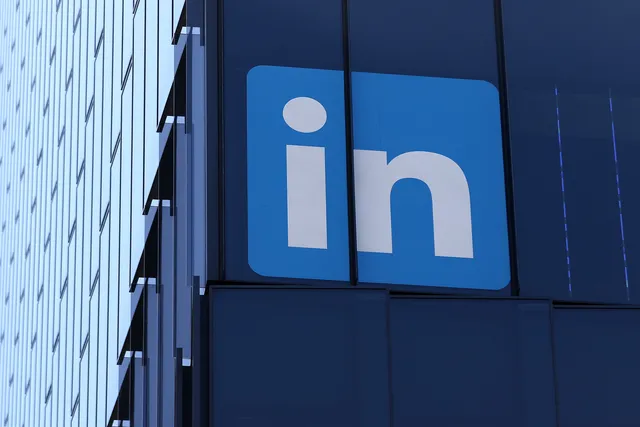LinkedIn Expands AI Job-Hunting Features for Premium Subscribers

LinkedIn, the world’s largest professional networking platform, has unveiled an expansion of its AI-powered job-hunting features, exclusively for Premium subscribers. This move aims to enhance the job search experience, making it more efficient and personalized. The new features leverage advanced artificial intelligence and machine learning technologies to provide deeper insights, improved job recommendations, and more effective networking opportunities. This article explores the new AI-driven enhancements, their benefits for job seekers, and the broader implications for the job market and professional networking.
New AI-Powered Features
LinkedIn’s expanded AI features for Premium subscribers include several key enhancements designed to streamline the job search process:
- Enhanced Job Recommendations: Utilizing sophisticated AI algorithms, LinkedIn now offers more tailored job recommendations. These recommendations are based on a user’s profile, job history, skills, and preferences. The AI analyzes patterns and trends to suggest roles that align closely with the user’s career trajectory and aspirations.
- AI Resume Feedback: Premium subscribers can now receive detailed, AI-driven feedback on their resumes. This feature evaluates the resume’s content, structure, and relevance to the desired job roles, providing actionable suggestions to improve the chances of getting noticed by recruiters.
- Interview Preparation Tools: The platform includes AI-powered interview preparation tools that simulate real interview scenarios. Users can practice answering common interview questions and receive instant feedback on their responses, helping them to refine their answers and improve their interview performance.
- Skill Gap Analysis: The AI features also include a skill gap analysis tool that identifies the skills a user lacks for their desired job roles. It provides personalized recommendations for online courses and certifications available on LinkedIn Learning to help users bridge these gaps and enhance their employability.
- Network Expansion Suggestions: Leveraging AI, LinkedIn suggests potential connections that could benefit a user’s career growth. These suggestions are based on shared interests, industry relevance, and mutual connections, facilitating more strategic networking.
Benefits for Job Seekers
The expanded AI features offer several significant advantages for job seekers, particularly those with Premium subscriptions:
- Personalized Job Search: By offering highly personalized job recommendations and feedback, LinkedIn makes the job search process more efficient and targeted. Users can quickly find roles that fit their skills and career goals, reducing the time and effort spent on job hunting.
- Improved Resume Quality: The AI resume feedback feature helps users create more effective resumes that stand out to recruiters. By highlighting strengths and suggesting improvements, it increases the likelihood of securing job interviews.
- Better Interview Preparation: The interview preparation tools give users a competitive edge by allowing them to practice and refine their responses to common interview questions. This preparation can boost confidence and improve overall performance in actual interviews.
- Skill Development: The skill gap analysis tool guides users in acquiring the necessary skills for their desired job roles. By recommending relevant courses and certifications, it helps users stay competitive in the job market and advance their careers.
- Strategic Networking: The network expansion suggestions enable users to build a more valuable and relevant professional network. Strategic connections can open up new opportunities, provide industry insights, and support career development.
Broader Implications
LinkedIn’s expansion of AI job-hunting features for Premium subscribers has broader implications for the job market and professional networking:
- Enhanced Job Market Efficiency: By making job searches more efficient and targeted, these AI features can help reduce unemployment and underemployment. Job seekers can find roles that match their skills and preferences more quickly, while employers can connect with suitable candidates faster.
- Democratization of Job Search Tools: While these features are currently available to Premium subscribers, they set a precedent for the potential democratization of advanced job search tools. As AI technology becomes more accessible, similar features could become available to all LinkedIn users, broadening their impact.
- Shift in Recruitment Practices: The use of AI in job searching and recruitment can lead to changes in how employers screen and select candidates. Companies may increasingly rely on AI tools to evaluate resumes and assess candidates, making the recruitment process more data-driven and efficient.
- Continuous Learning and Adaptation: The integration of skill gap analysis and personalized learning recommendations highlights the importance of continuous learning and adaptation in today’s job market. Professionals must stay up-to-date with industry trends and acquire new skills to remain competitive.
- Ethical Considerations: As AI plays a larger role in job hunting and recruitment, ethical considerations around data privacy, algorithmic bias, and transparency become increasingly important. LinkedIn and other platforms must ensure their AI tools are fair, unbiased, and respectful of user privacy.
Conclusion
LinkedIn’s expansion of AI job-hunting features for Premium subscribers marks a significant advancement in the job search and professional networking landscape. By offering personalized job recommendations, AI resume feedback, interview preparation tools, skill gap analysis, and strategic networking suggestions, LinkedIn enhances the job search experience and helps users achieve their career goals more effectively. As these AI technologies continue to evolve, they have the potential to transform the job market, making it more efficient, personalized, and inclusive. However, it is crucial for LinkedIn and other platforms to address ethical considerations and ensure their AI tools are fair and transparent, ultimately benefiting both job seekers and employers.




